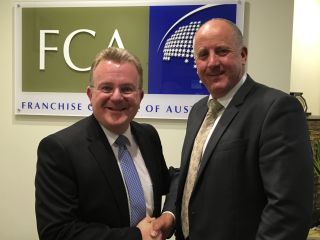
The Franchise Council of Australia has a new CEO. Damian Paull has been appointed to the role after five years at the Australian Retail Credit Association.
FCA executive chairman Bruce Billson described Paull as a highly regarded, membership organisation executive backed by a track-record of achievement and with “a reputation for effective stakeholder collaboration and membership engagement”.
“His leadership role at the Australian Retail Credit Association (ARCA) shows an ability to work with and embrace the goals of a diverse array of large and small members where views need to be distilled into a clear and coherent agenda and policy-maker engagement that is credible, considered and collegiate,” Billson added.
Paull believes he can make a valuable contribution implementing the FCA’s strategic agenda and lifting the profile of franchising and the FCA.
“Franchising is where creative ideas and innovation delivers real economic value. Working with our Board and the FCA team, my aim is to capture that spirit of innovation and creativity to deliver real value to our members,” he said.
“I understand how right-sized regulation and effective regulator engagement, supported by education and professional development, provide the confidence and competence to support growth, investment and job creation in a key sector of our economy."
Paull starts his full time role with the FCA later in June but in the next few weeks will spend some time familiarising himself with the sector’ opportunities and challenges, meeting with the Board, staff and key stakeholders and be briefed on the organisation’s business plan and budget.
According to the FCA, an early priority for Paull will be finalising plans for the National Franchise Convention to be held in Canberra in October, implementing plans for membership growth and supporting the Board in restoring sector confidence and a sustainable FCA budget position in the wake of the impact of the 7-Eleven revelations and regulatory responses.

